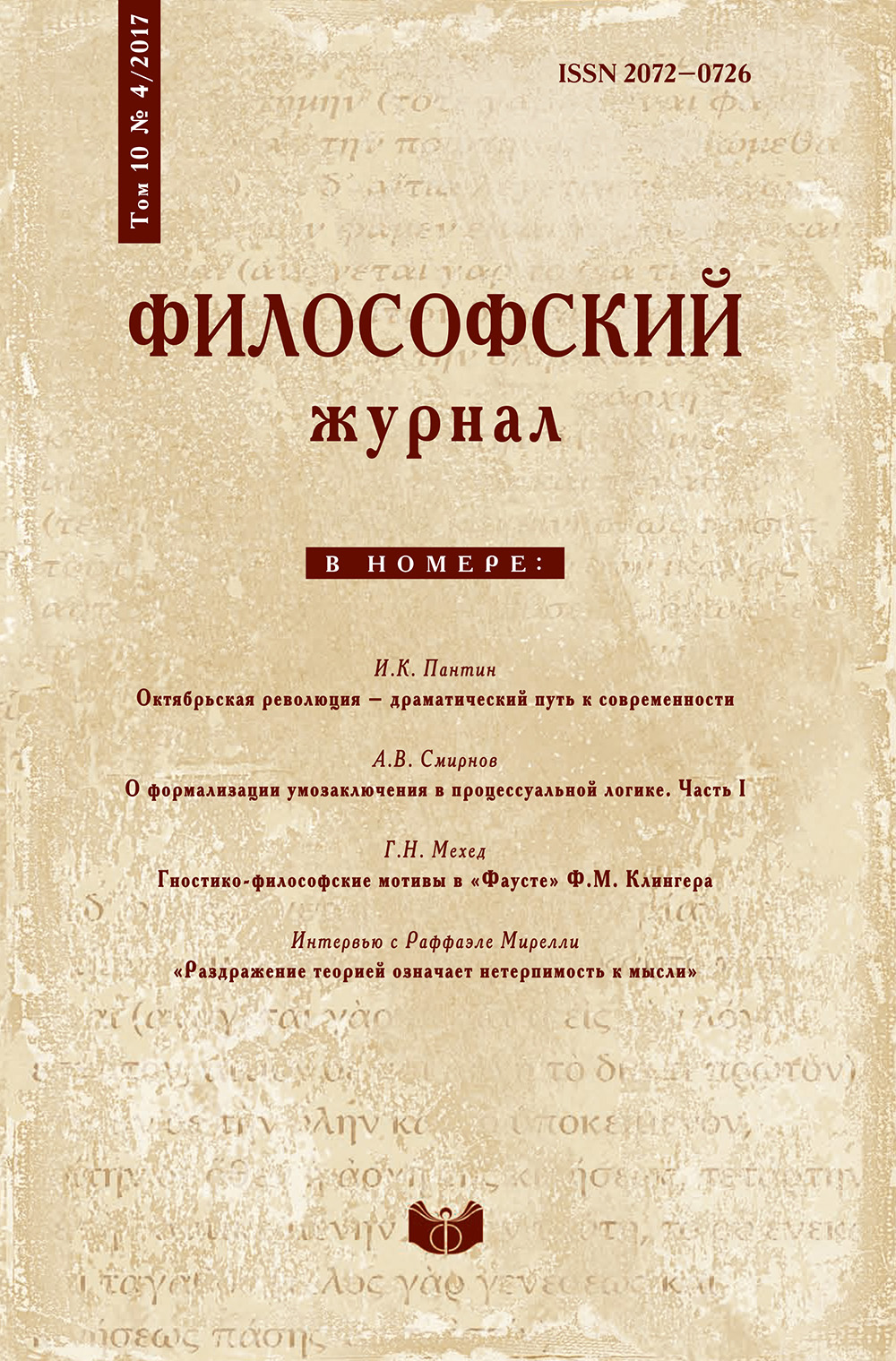Critique of revolutionary consciousness in the work of Semyon Frank
(140th anniversary of Frank’s birth)
DOI:
https://doi.org/10.21146/2072-0726-2017-10-4-41-58Keywords:
Russian philosophy, Semyon Frank, revolution, intelligentsia, radicalism, liberal conservatism, emigrationAbstract
In this paper, the author traces down the evolution of social and political ideas of the eminent Russian philosopher of the 20th century Semyon Ludwigovich Frank (1877-1950). As a young man, Frank had been an adherent of the Marxist variety of radical socialism; only the events of 1905–1907 led him, as well as other young intellectuals of his generation, such as Berdyaev, Bulgakov, Struve, Isgoev, Kistyakovski and others, to abandoning Marxism and positivism first for moderate Christian liberalism and then eventually for liberal conservatism. The immediate effect of the first Russian revolution on Frank was that he became member of the Constitutional Democratic Party and took part in 1909 collection of essays Vekhi ('Landmarks'). The article, further on, contains a detailed analysis of the most important among Frank's writings in political philosophy, mainly intended to debunk the ideology of Russian revolutionary intelligentsia, such as Philosophical prerequisites of Despotism (1907), The Ethics of Nihilism (Frank's contribution to Vekhi, 1909), De profundis (an essay from the homonymous collection of 1918), and the emigrant publication Beyond the Left and the Right (1930).






